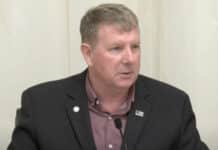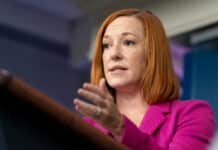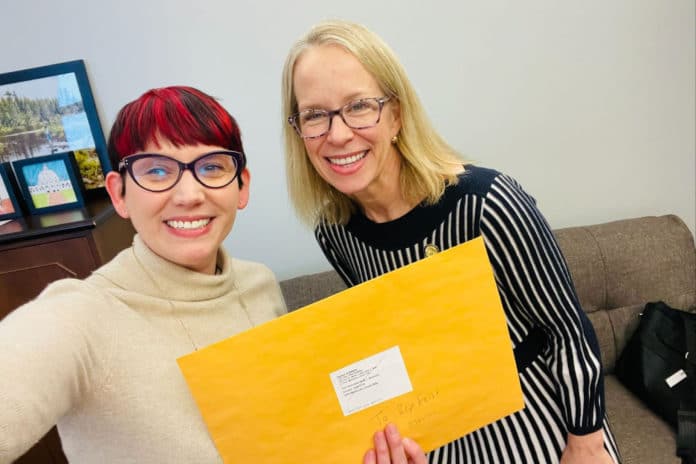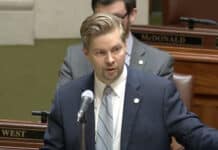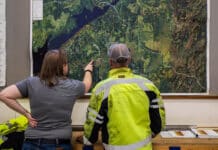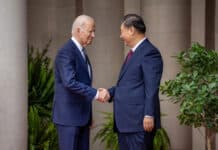More than two dozen DFL legislators — nearly all from the suburbs — have signed onto a bill that would attempt to put permanent brakes on a highly contentious, planned copper-nickel mining facility near Ely that could bring upwards of 2,000 new jobs to northeast Minnesota.
Critics of what would be Minnesota’s first copper-nickel facility, proposed by Twin Metals, argue that copper-nickel mining in the area would irreversibly pollute the environment in the nearby Boundary Waters Canoe Area. Supporters have said that Twin Metals has demonstrated its plant will use the best available technology to mitigate and prevent such pollution. The project remains up in the air as Twin Metals has sued the Biden administration over lease rights to the project.
Mining of any kind is already banned in the federally protected BWCA. But legislation introduced last week by Rep. Sandra Feist, DFL–New Brighton, and Sen. Kelly Morrison, DFL–Deephaven, would expand that ban to all state-owned land in the Rainy River Headwaters, which covers nearly 1.9 million acres in northeastern Minnesota. That area includes the proposed copper-nickel mining facility that Twin Metals has been working to open for more than a decade. Those opposing the Twin Metals mining project say it’s too close to the BWCA (one of the most visited wilderness areas in America) and would produce water pollution that will flow downstream in the Rainy River Headwaters watershed that touches the Boundary Waters.
Conspicuously absent from the list of sponsors for HF329/SF167 is a DFLer who represents a large portion of the Iron Range, considered the cradle of the mining community in Minnesota. No Republicans have signed on to the bill in either the House or Senate.
In 2019, Twin Metals submitted its mine plan to state and federal agencies, which triggered a scoping and environmental review process to thoroughly evaluate the proposal. And while federal government support for the project has been dependent on which party is in power, DFL sponsors of HF329/SF167 aren’t leaving that to chance.
“This bill leaves no loose ends or open questions about whether sulfide or copper mining will ever be permitted on state-owned lands in the Rainy River Headwaters portion of the Boundary Waters Watershed,” Rep. Feist said in a Tuesday press conference announcing the Boundary Waters Permanent Protection Act. The bill has been referred to environment and natural resources committees in the state House and Senate, but hearings have not been scheduled.
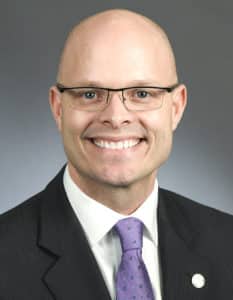
More than 20 DFL legislators in the House and Senate have signed onto the bill as sponsors, nearly all of them representing areas in the Twin Cities. Missing from the sponsor list in the House is Rep. David Lislegard, DFL-Aurora, who represents a large swath of the Iron Range, where the mining economy has historically been regarded as a top priority for constituents. Requests for comment from Rep. Lislegard — who sits on the House Environment and Natural Resources Committee where the bill would receive its first hearing — weren’t returned this week.
The list of those who have signed onto the bill, and those who haven’t, is telling, said Rep. Josh Heintzeman, R-Nisswa.
“I think [Lislegard’s] name being absent from the bill is a signal in and of itself,” said Heintzeman, Republican lead on the House Environment and Natural Resources Committee. “There are some difficult conversations happening in [the DFL] caucus in that subject area and the proof in the pudding will be whether these bills have hearings. My caucus is going to have a lot to say about this bill and we’re going to oppose it.”
Introduction of the proposed legislation at the Minnesota Capitol follows an unsuccessful push by Democrats in the federal Congress last year to pass a bill that would essentially have accomplished the same goal: to stop the Twin Metals facility from opening. Now that the Republicans control the U.S. House of Representatives, those who support a permanent mining ban in the Rainy River Headwaters area are placing their hopes in the state legislature.
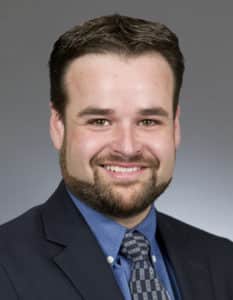
But will the bill have enough support among key DFLers to earn a committee hearing, let alone reach a vote on the House or Senate floors? And would Gov. Tim Walz — who has expressed support for new mining facilities in Greater Minnesota, but has stopped short of saying he would support the Twin Metals facility near Ely — sign the legislation effectively banning the Twin Metals facility?
“I think many of us have been shocked to see the lip service that’s been paid (by Democrats and Walz) to the mining economy and community, only to see permitting for copper-nickel mining languish,” Rep. Heintzeman said. “While he will say he supports mining, Gov. Walz doesn’t seem to be able to move his agencies towards actually getting mining approved in those areas where it has met those high environment quality standards and gone through rigorous approval processes.”
Hank Long
Hank Long is a journalism and communications professional whose writing career includes coverage of the Minnesota legislature, city and county governments and the commercial real estate industry. Hank received his undergraduate degree at the University of Minnesota, where he studied journalism, and his law degree at the University of St. Thomas. The Minnesota native lives in the Twin Cities with his wife and four children. His dream is to be around when the Vikings win the Super Bowl.



